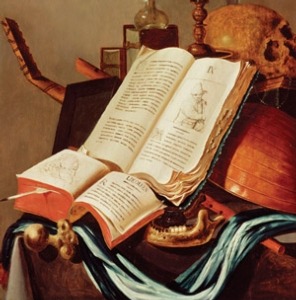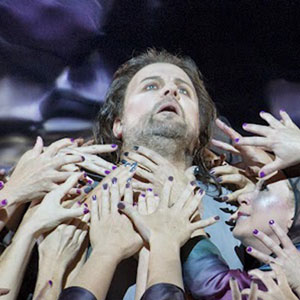Life for the heroes of Andrey Kurkov's novels tends to be fairly grim. I'm sure he would argue that he is merely satirising life in presentday Ukraine where salaries are low, corruption is rife, opposition politicians are poisoned and the black market is the only economy thriving. But even by Kurkov's standards, the miseries he heaps on the protagonist of A Matter of Death and Life seem a little excessive.
Tolya and his wife live in a gloomy oneroom Kiev apartment. They're mired in another matrimonial sulk. His wife goes out most evenings and no longer makes any secret of her affairs. Now she has locked herself in the bathroom again. But that's only to be expected, neither of them is any longer happy to undress in front of the other. "Naked," after all, "one was easily hurt." The only thing colder than his marriage is the weather; autumn is approaching and the young man's thoughts turn to suicide. He rarely looks out of the seventh floor window without contemplating the high dive. But suicide is not for him because, beyond the bounds of his own miserable existence, he actually has an appreciation that life can be good. What a conundrum. Then a solution presents itself: why not hire a contract killer? "For years, in imagination and fantasy, I had been seeking some way out of my deadend situation in life. And here, on a plate, it was out of the dead end and of life itself. Too fond of life ever to take my own, I was made for the role of victim."
He sets off into town for a boozy evening with an old school acquaintance. Tolya, you should understand, has no real friends, and has decided to call in to see Dima Samorodin because he has glimpsed him through the window of the boutique where he works. Dima doesn't get paid much but his boss allows him two bottles of alcohol a day to supplement his income. They get drunk and Dima, it transpires, knows a killer or two: apparently the going rate in Kiev is $5000$10000 depending on the target. He of course assumes the target to be Tolya's errant wife or her lover.
Good as his word, two days later a man called Kostya rings instructing our hero to provide him with a photograph of the target, and information on where he or she can be found. Tolya can't find an image that looks like him so he visits an old photographer and has a new portrait taken. "The photograph was not bad: portrait of the popular actor! The faint, enigmatic smile and the pensive narrowing of eyes were distinctly Leninesque." He then wanders around the city looking for the appropriate venue at which to receive a bullet in the back or the base of his skull ("Much as I have spent my whole life doing, leisurely, aimlessly, popping into this café or that, looking for anyone I knew in the queue."). As he does so, however, he becomes concerned for his posthumous reputation. The killer must get away; the motive remain a mystery. The death must be viewed as a tragedy rather than food for gossip. So he decides on the gloomy cellar café adjoining a baker's. The information is despatched to the killer ("October 12, 1800 hrs, Fraternal Street, café by tram stop 31"); two and a half days left to live. How to spend it?
It's here that the novel shifts. With such a short time left, Tolya begins to see his life in a different way. He lists his priorities. The approaching autumn is now a cause for celebration: "red leaves, yellow leaves, crisp bracing air . . . Heaven, if given to autumns, could hardly better this." His wife announces she is leaving him and arrives with "a colleague" to collect her clothes. Nevertheless, Tolya arrives at the Fraternal Street café for his rendezvous with death. But the killer doesn't show. At 6.40 he realises he's had forty minutes of unlookedfor life. He takes a prostitute home and, promising to pay her in the morning, spends the night with her. His appetite for his own life is reawakened. He no longer wants to die. But there's a killer out there with a job to do and he won't be diverted.
If this all sounds unrelentingly grim I promise you it isn't. Kurkov's novels unfold like Kieslowski movies: a slow accretion of small details; an acceptance that life is a daily act of heroism; a spareness of joy, but when the sun does break through the clouds it is a genuine cause for celebration. A Matter of Death and Life is only 111 pages long and can (and should) be read in one sitting, but it has the power of novels many times its length. In writing about death, Kurkov has provided a wonderful meditation on what it means to be alive. His message, as always, seems to be that we should strive to raise ourselves above our daily struggles and make the most of our tariff of days.
The contract killer stalks us all.
A Matter of Death and Life is available from Amazon (UK)

